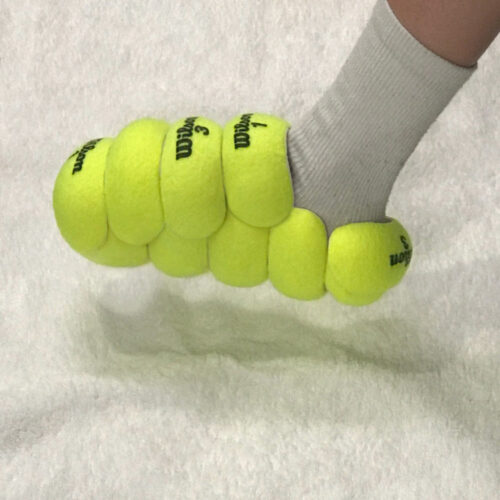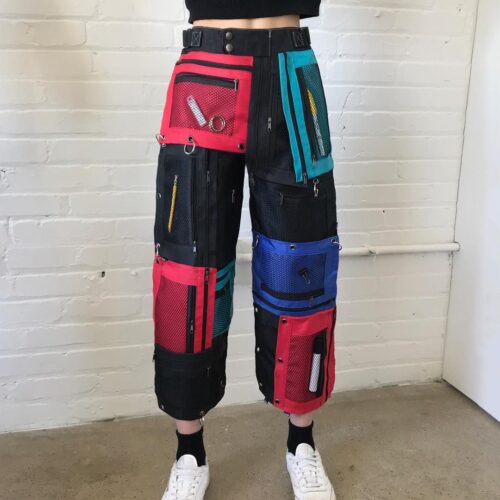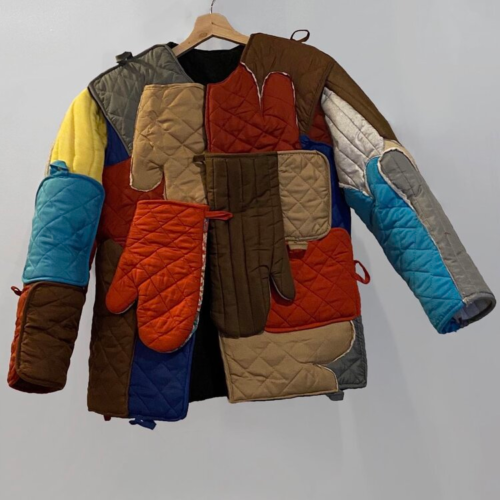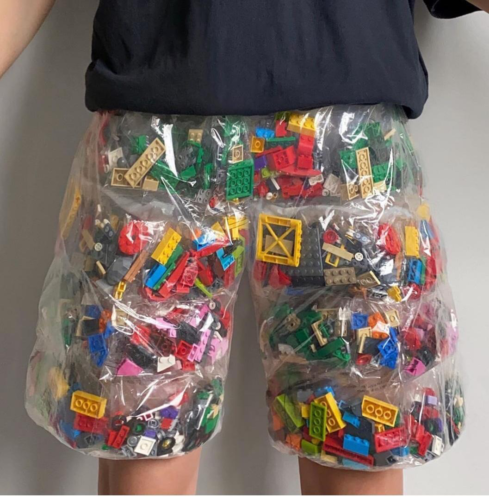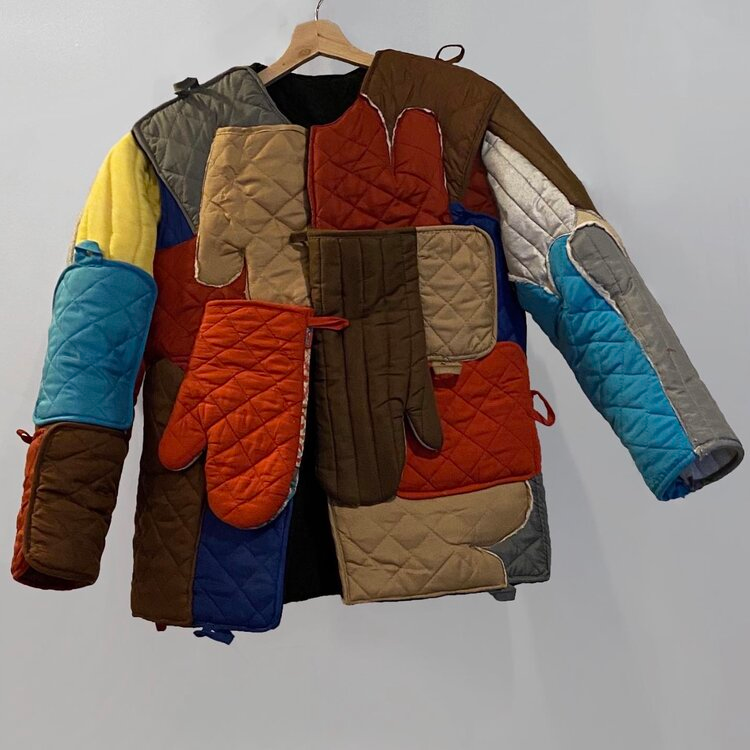The fashion industry and its popular fast-fashion business model is one of the most unsustainable industries. Comparable to the fuel and transport industries, the fashion industry produces 10% of global carbon emissions and is the second-largest consumer of the world’s water supply. Eco-friendly fashion has been on the radar of many name brands such as Nike and Patagonia, but no one does sustainability quite like New York-based designer, Nicole McLaughlin. McLaughlin upcycles everyday objects and turns them into high fashion streetwear. With designs ranging from shorts made with legos, a vest made with car air fresheners, and slippers made of tennis balls, anything is fair game to McLaughlin.
Inspired by name sports and sportswear brands she grew up with, McLaughlin takes thrifted items, used objects, and clothing samples that get discarded to patch together her artistic creations. Her eclectic designs are often distinguished by brand logos and an 80s/90s sporty retro aesthetic. Influenced by contemporary artist Tom Sachs, McLaughlin approaches her work as art rather than apparel. She often takes apart her designs and reuses the material for new ideas, continuing the cycle of sustainability.
McLaughlin’s passion for sustainable fashion extends to other parts of her life as she continues to find new avenues for her advocacy. McLaughlin’s start with sustainable fashion as a new graduate all began because reusing material was the cheapest option. With those origins fueling her efforts, McLaughlin is currently working on a non-profit organisation that will provide design resources to students by bridging the gap between large companies who have deadstock and overstock material and schools. By finding a solution for these materials that are often thrown away, she will be instilling sustainable practices in corporations who run the industry and young designers who are the future of it.
